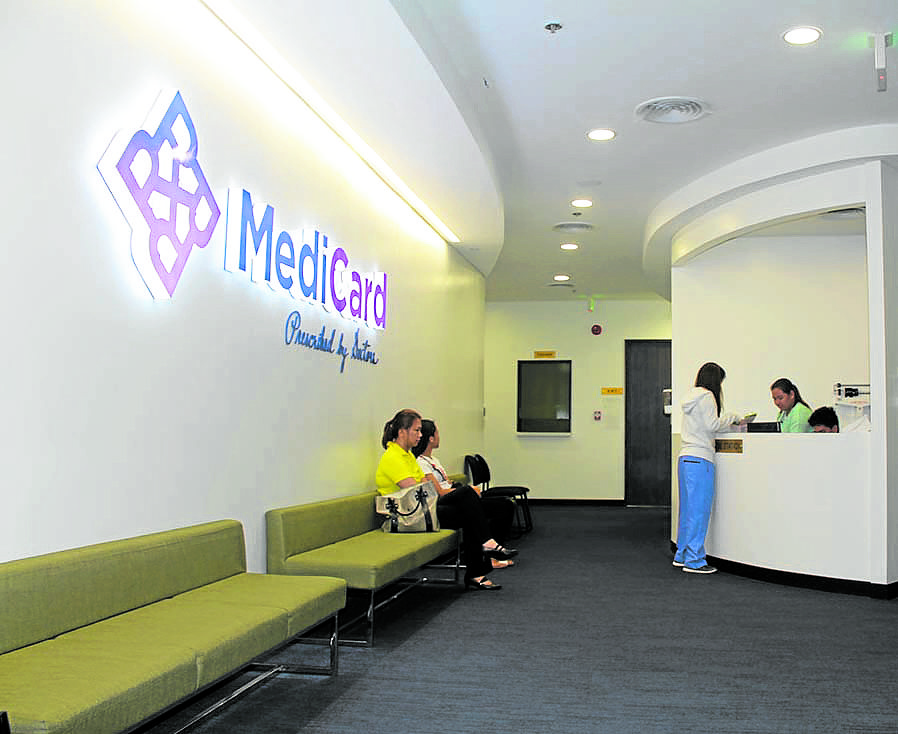If there’s anything this crisis has shown us so far, it would be how critical it is to have adequate healthcare infrastructure and more importantly, access to it.
The continued threat of the COVID-19 pandemic and the ongoing enhanced community quarantine have brought to light the growing need to also have medical facilities, at least those that can provide primary care services, within easy reach. Thus, as talks of integrated communities and their importance resurface anew, the question of having satellite medical facilities within townships and estates—of whether or not it’s logical, practical and safe to do so—is now being included in the discussions.
Joel Luna, registered architect, environmental planner and a certified Berde professional, said in the recently held Inquirer Property webinar, entitled “Future-proofing Real Estate,” that there may be a need to expand the offerings of an integrated community to ensure its resiliency amid a a pandemic such as COVID-19. Healthcare is one of the components Luna mentioned.
“I think what the crisis underscores is the need for resiliency in general—not just resiliency in pandemics, but all other shocks that are bound to happen. (The concept of) mixed use (has been) mentioned a couple of times already. The diversity of activity is one way to address resiliency. Homogenous developments tend to be less resilient so bringing different uses closer to each other and expanding what is often cited as live-work-play—to include health, learning, food production maybe, small scale manufacturing, recreation, open space—(will make a community) as diverse as possible,” Luna explained.
The need to have such medical and wellness facilities has also become more pronounced amid this COVID-19 pandemic, according to Jose Soberano III, chairman, president and chief executive officer of Cebu Landmasters Inc.
Soberano, who was also one of the panelists at the Inquirer Property webinar held on May 4, noted that while they don’t have this component yet in their township and mixed use developments, it was something that they are considering as “medical centers, hospitals and clinics should now be part of the equation.”
Even prior to the spread of COVID-19 however, there are institutions that have long seen the importance of having satellite clinics that could address the primary care needs of communities.
Leading health maintenance organization Medicard Philippines Inc., for instance, has its free-standing clinics that have made adequate healthcare even more accessible to more Filipinos—a critical need nowadays given this life-threatening health crisis that the world faces. Medicard currently has a total of 15 free-standing clinics spread across various communities in Metro Manila and the provinces of Laguna, Batangas, Rizal, Pampanga and Cebu.
Medicard president Dr. Nicanor S. Montoya believes that having a clinic or wellness center that is highly accessible to communities or townships is important as these will cater to those who do not want to go immediately to the big hospitals but will need to consult with a doctor for primary care and for other illnesses.
Medicard Philippines currently has a total of 15 free-standing clinics spread across communities, townships in Metro Manila and the provinces of Laguna, Batangas, Rizal, Pampanga and Cebu.
“I think at least every township should have that—a basic clinic with skilled doctors who can see you and determine whether or not you need to go to the bigger health centers,” Montoya said in an interview. “We’re talking about clinics providing basic or primary care since it might not be feasible also to have a big hospital in every township. At least, if you have these clinics you have the first layer of defense that can evaluate your medical needs… you wouldn’t need to needlessly travel to the hospitals or bigger health centers.”
“We, as an HMO, have always espoused the need to have appropriate care in appropriate levels, meaning you don’t have to go to a specialist right away for the simple problems. You can have medical care from the clinics. For the more complicated problems, then you will need to be in the bigger centers and consult with specialists,” Montoya explained.
In the case of Medicard, its free-standing clinics can cater to patients seeking primary care which, prior to COVID-19, included fever and headaches, coughs and colds, stomachaches and even upper respiratory infections. Certain precautions, however, will now have to be taken considering that among the symptoms of COVID-19 include some of the common illnesses.
Despite the risks, Medicard has remained committed to bring healthcare closer to more Filipinos during these challenging times as it has kept open nine of its free-standing clinics. Part of Medicard’s services also include a user-friendly and interactive website (medicardphils.com); telemedicine, wherein you can have primary care consultation with the doctors at Medicard Lifestyle Center (in Makati City) without having to leave your home; and MyPocketDoctor, an app that allows you to make an appointment and consult with your doctor via Viber, Facebook Messenger and Facetime.
Coming up with ingenious ways to give better healthcare access, Medicard is indeed an exceptional showcase of how a healthcare provider can be of true service to the Filipinos.
